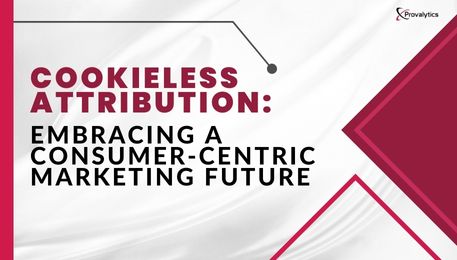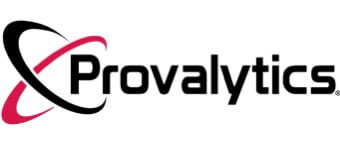Cookieless Attribution: Embracing a Consumer-Centric Marketing Future
The change to cookieless attribution is becoming an unavoidable reality in the quickly expanding world of digital marketing. As marketers and advertisers struggle with the impending changes, it is critical to see this shift as an opportunity rather than a challenge. Brands may modify their strategy and prosper in a post-cookie era by adopting a consumer-centric approach.
Prioritizing the Customer
Prioritizing the client is an important component of adapting to the cookieless environment. Marketers must move their attention away from relying heavily on third-party data for targeting and tracking and toward creating closer relationships with consumers. This entails cultivating trust and transparency while protecting user privacy. Businesses may create more meaningful and tailored experiences that resonate with their target audience by putting the consumer first.
🚀 Yes, I Want The 2024 Playbook!
Fortunately, research shows that the majority of consumers are willing to share personal information in exchange for customised products or services. According to a survey, 79% of consumers are eager to supply brands with the information they need to improve their purchasing experiences. This readiness shows that marketers have a chance to obtain first-party data directly from customers, allowing them to send targeted messages without relying entirely on cookies.

Diversifying Attribution Strategies: Beyond Cookies
Marketers must diversify their attribution tactics to effectively navigate the cookieless landscape. Instead of depending simply on cookies to track conversions and analyze campaign effectiveness, contextual targeting and probabilistic modeling can be used. Contextual targeting enables marketers to show ads based on the content of a webpage in real-time, ensuring that advertising are relevant and aligned with the user’s interests.
Furthermore, probabilistic modeling analyzes trends and behavior using statistical algorithms, allowing marketers to infer relationships between multiple touchpoints in a user’s journey. Brands can acquire useful insights on consumer behavior while protecting user privacy and providing personalized experiences by utilizing these strategies.
Building first-party data capabilities, in addition to diversifying attribution methodologies, is critical in the cookieless future. Brands may develop direct relationships with their audiences by encouraging them to share information willingly, allowing for more accurate targeting and customisation. This entails putting in place strong data collection methods, like as surveys, preference centers, and loyalty programs, where customers actively disclose their preferences and interests.
Furthermore, within the advertising ecosystem, collaboration and partnerships play an important role in tackling the issues provided by the cookieless environment. Advertisers, publishers, and technology providers must collaborate to create industry standards and solutions that respect user privacy while enabling successful targeting and measurement.
The shift to a cookieless attribution approach provides a chance for marketers to reconsider their strategy and prioritize consumer requirements. Brands may successfully traverse the growing digital market by taking a consumer-centric approach, broadening attribution methodologies, developing first-party data capabilities, and encouraging industry collaboration. Finally, this transition provides marketers with an opportunity to develop more tailored, relevant, and meaningful experiences for their target audience while protecting user privacy and strengthening connections.
What is cookieless attribution?
Cookieless attribution refers to the practice of tracking and measuring user interactions and conversions in digital marketing without relying on cookies, which are small text files stored on users’ browsers. As privacy concerns and regulations increase, cookieless attribution has become necessary to respect user privacy and adapt to changing technological landscapes.
Why is a consumer-centric approach important in the cookieless era?
A consumer-centric approach is crucial in the cookieless era because it prioritizes building strong relationships with customers and respecting their privacy. By focusing on the needs and preferences of consumers, brands can create personalized experiences and obtain first-party data directly from customers, rather than relying solely on third-party data and cookies.
How can marketers diversify attribution strategies beyond cookies?
Marketers can diversify their attribution strategies by exploring alternative methods such as contextual targeting and probabilistic modeling. Contextual targeting involves delivering ads based on the content of a webpage, ensuring relevance and alignment with the user’s interests. Probabilistic modeling utilizes statistical algorithms to analyze patterns and behavior, enabling marketers to infer connections between different touchpoints in a user’s journey.
How can brands build first-party data capabilities in the cookieless future?
To build first-party data capabilities, brands can encourage consumers to provide information willingly through mechanisms like surveys, preference centers, and loyalty programs. By offering personalized experiences and value in exchange for relevant data, brands can establish direct relationships with their audience and gather valuable insights for targeted marketing efforts.
Why is collaboration important in the cookieless advertising ecosystem?
Collaboration within the advertising ecosystem is vital to address the challenges posed by the cookieless environment. Advertisers, publishers, and technology providers need to work together to develop industry standards and solutions that respect user privacy while enabling effective targeting and measurement. Collaboration ensures a harmonious and privacy-conscious advertising ecosystem that benefits both businesses and consumers.

